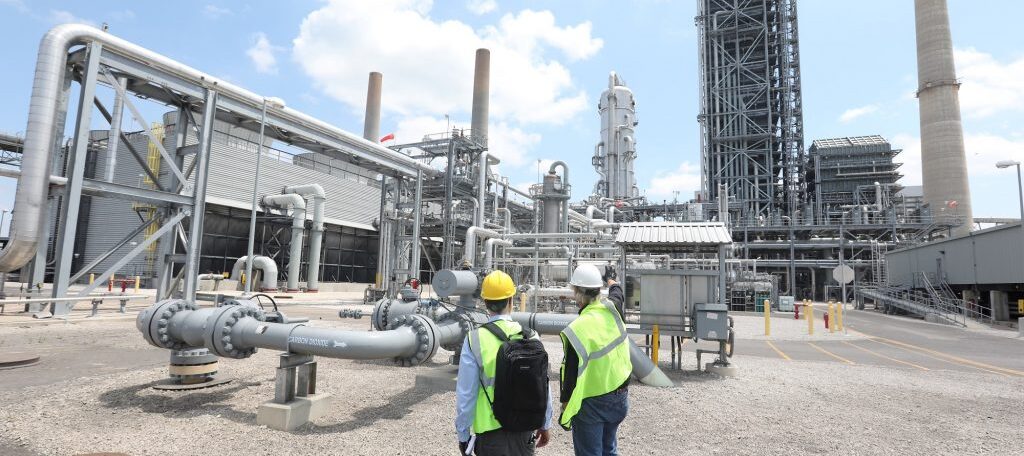The oil and gas industry plays a crucial role in the energy transition, as the world shifts towards a low-carbon economy. While oil and gas companies have traditionally focused on extracting and producing fossil fuels, they are now being called upon to adapt and transform their business models to support the energy transition.
As the third decade of 21st century begins, the oil and gas industry face opposition from a public greatly concerned with the environmental impact of fossil fuels, ever-more skeptical shareholders, and challenges from policy makers seeking to simultaneously meet decarbonization goals and expected oil and gas demand. Amidst a global energy transition, the demand, financial, and social future of oil and gas companies is increasingly in question.
However, even with these obstacles, oil and gas remain an important part of the energy mix, especially in developing regions. The International Energy Agency’s Sustainable Development Scenario (SDS) and the Shell Sky Scenario—both aggressive decarbonization forecasts—show an ongoing, long-term role for oil and gas, even while demand levels are reduced from where they stand today. In the United States, India, and China—the three largest greenhouse gas emitters—natural gas in particular has the potential to remain an integral component of the low carbon energy transition for decades to come, depending on the policy mechanisms and technologies in place.
READ: Offshore Safety Permit & New DPR OSP UPDATES
The challenge for the oil and gas industry is to both engage and adapt to a changing policy and investment landscape, but also to evolve in ways which don’t simply support but contribute and perhaps even lead efforts to decarbonize the energy system.
Around the world there is at least a gradual shift from policies that have supported oil and gas production to policies that instead are starting to disincentives fossil fuels, including carbon pricing and the European Union’s Emission Trading Scheme. In addition to disincentives, many governments are encouraging the use of substitute technology and fuel, especially renewable energy. A third method of decreasing carbon use is the organization of circular economies, in which materials are reused or recycled instead of disposed of at the end of their service life.
Investors are also becoming a strategic driver of decarbonization action, growing increasingly attuned to the demand horizon for hydrocarbons and shifting attention to the environmental impact of oil and gas production through Environment Social Governance (ESG)-focused investing. Stranded asset risk is a significant concern for shareholders as the future energy mix takes shape.
Oil and gas companies are responding by looking at where and how they do business and confronting a rethink of business models in a decarbonizing world. These companies have a range of tools when it comes to engaging with decarbonization efforts in ways which allow their participation in the decarbonizing economy. Where energy demand is growing rapidly, oil and gas companies can endeavor to support coal-to-gas switching and investing in infrastructure that enables electrification to meet end user demand and support lower GHG upstream operations. Companies can also focus on using renewables and new technologies not just as a hedge against demand risk or to decarbonize their production, but to leverage their expertise with supply chains and market development to support low carbon energy deployment in the energy transition on-the-whole. How oil and gas companies choose to engage with the low carbon energy transition may determine how they are viewed by shareholders, governments, and the general public.
Here are some ways oil and gas companies can contribute to the energy transition:
- Diversification into renewable energy: Many oil and gas companies are investing in renewable energy sources like solar, wind, and hydrogen to reduce their carbon footprint and provide cleaner energy options.
- Decarbonization of operations: Companies are implementing measures to reduce emissions from their operations, such as using renewable energy to power facilities, implementing energy-efficient technologies, and reducing flaring and venting.
- Carbon capture, utilization, and storage (CCUS): Oil and gas companies are developing CCUS technologies to reduce emissions from their operations and produce clean energy.
- Electrification of transportation: Companies are investing in electric vehicle charging infrastructure and partnering with automakers to promote the adoption of electric vehicles.
- Energy storage and grid management: Oil and gas companies are developing energy storage solutions and grid management technologies to support the integration of renewable energy into the grid.
- Research and development: Companies are investing in R&D to develop new low-carbon technologies and solutions, such as advanced biofuels, hydrogen fuel cells, and carbon capture and utilization.
- Partnerships and collaborations: Oil and gas companies are forming partnerships with renewable energy companies, startups, and research institutions to accelerate the energy transition.
- Investment in low-carbon infrastructure: Companies are investing in infrastructure such as green hydrogen production facilities, carbon capture and storage hubs, and renewable energy transmission lines.
- Workforce transition: Oil and gas companies are retraining their workforce to support the energy transition, developing skills in areas like renewable energy, energy efficiency, and sustainability.
- Advocacy and policy support: Companies are advocating for policies and regulations that support the energy transition, such as carbon pricing, tax incentives for renewable energy, and grid modernization.
By taking these steps, oil and gas companies can play a crucial role in the energy transition, leveraging their expertise, resources, and global reach to support the development of a low-carbon economy.

